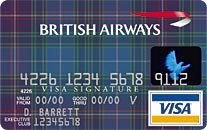The Citi® Professional Card, issued by Citibank, is designed for those with average credit who are looking to maintain and manage all of their personal and business related expenses with a credit card.

The card offers access to a free rewards program. Through the reward program, the cardholder receives one point for every dollar spent on general purchases and three points for every dollar spent at restaurants, gas stations, certain office supply merchants, and on auto rentals. Points can be redeemed for a variety of merchandise, air travel, and gift certificates. There is a yearly limit of 100,000 points, and points expire in three years.
Aside from the reward program, cardholders can expect access to a variety of platinum benefits that include up to $1,000,000 in travel accident insurance, auto rental insurance, and various travel and emergency assistance services.
The card offers cardholders the benefit of the Citi® Professional Card's online expense reporting tool, which allows cardholders to categorize card activity and generate as many individual, easy-to-read expense reports as they choose.
The card has no annual fee, an attractive 0% introductory rate for balance transfers for the first nine months of membership, and a reasonable interest rate for purchases and balance transfers. However, there is a minimum cap for cash advances; so no matter how low the Prime Rate falls (the APR is tied to the Prime Rate), the interest rate will not go below the minimum cap.

